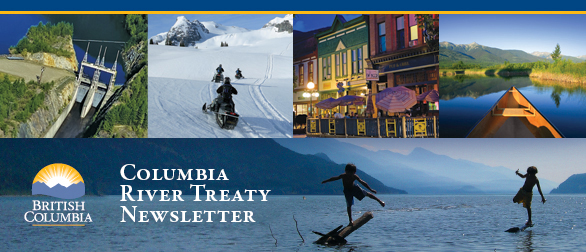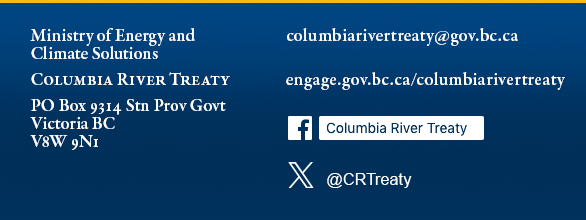Columbia River Treaty
Edition: April 2021

Youth Spotlight: Ali Giesbrecht
Apr 27, 2021
Hello! My name is Ali Giesbrecht. I am a 20-year old resident of Cranbrook. In 2018, I was a student in the inaugural year of Wildsight’s Columbia River Field School. Going into the trip, I had little to no knowledge about the Columbia watershed or the Columbia River Treaty. I had also never been canoeing and camping for so long before, and I knew none of the students or leaders on the trip. So, I was very nervous. Little did I know how much this two-week adventure was going to change my life. Throughout the trip, I built a strong connection to the Columbia River. Paddling several different sections (free flowing and dammed) really helped me to form a well-rounded understanding of why the Columbia is such an important river. I had the privilege to witness its beauty in many forms, such as the wildlife and aquatic life, its geography, human connections with the watershed, and special locations like the headwaters and its confluence with the Kootenay River.
I also really enjoyed talking to biologists, artists, dam employees, Indigenous leaders, government officials, and many other Basin residents along the way (to name just a few). It helped me form a well-rounded opinion of the Columbia River Treaty and how it has shaped this region. The end of the Field School also featured a mini-conference with many guest speakers that focused on the importance of youth voices like mine.
In 2019, I returned to the Field School as Assistant Trip Leader to help mentor the next cohort of students. As much as possible, the Field School leaders try to provide students with opportunities to go further and stay engaged. Along with other program alumni, I have been able to participate in numerous Columbia River focused events like the 2019 One River - Ethics Matter Conference, the 2019 Columbia Basin Transboundary Conference, a conversation with the Columbia Basin Regional Advisory Committee, Columbia River Treaty townhall meetings, and various others. I have also presented at conferences about education and climate change. These opportunities have allowed me to keep learning about my home watershed and to make my voice heard in processes that are shaping its future. Participating in the Field School also helped me to choose my educational/career path in Environmental Science, which I am currently pursuing through the College of the Rockies and the University of Lethbridge. In the future I hope to become a biologist that studies topics like hydrology, aquatic and terrestrial life, and the possibility of bringing salmon back to the Upper Columbia.
As a young person, it can be hard to feel included and have your voice heard by decision making teams, which are dominated by older generations. More youth should have the chance to learn about things like the Columbia River Treaty and form connections with the people actually involved in shaping the outcomes. I hope a modernized Columbia River Treaty includes increased environmental awareness, respects the rights of Indigenous Nations, and makes more space for youth and other stakeholder voices.
Editor’s note: This is the first article in a new column highlighting youth experiences and perspectives in relation to the Columbia River Treaty. Stay tuned for more young voices!


